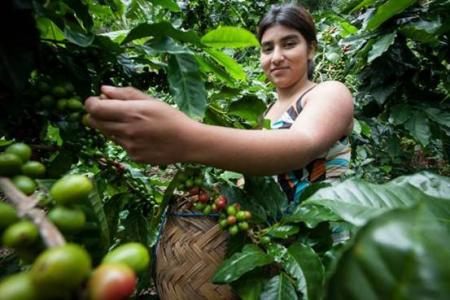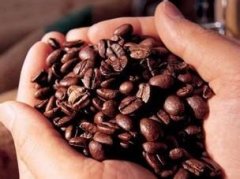A brief introduction to the characteristics of Coffee Flavor description varieties in San Pedro Manor, Puerto Rico

Puerto Rico's new farm coffee is a mild, supple and well-balanced island bean with a charming single malt flavor, extremely sweet when sipped in a cup, and medium-roasted creamy and greasy texture that is often suitable for Puerto Rico island beans.
In 1898, the Spanish-American War broke out and Spain was defeated. According to the Treaty of Paris, Puerto Rico was ceded to the United States. The administrative jurisdiction of the United States over Puerto Rico first took the form of a military junta. During its two years of governance of the island, the junta established schools, roads, railways, hospitals and health facilities. In 1900, the United States Congress established civilian control over the island. One of the two chambers of the Governor, the Cabinet and the Puerto Rican legislature is appointed by the President of the United States. Puerto Ricans elect another chamber of the legislature and a commissioner based in the capital who will represent the interests of the island in Washington and have a voice but no vote in Congress. Puerto Ricans are also exempt from United States taxes. On November 6, 2012, Puerto Rico held its fourth referendum. The referendum consists of two rounds of voting. In the first round, Puerto Ricans voted on "whether they want to change the status quo in their relations with the United States". 1.8 million people were eligible to vote, 65000 gave up the first round of voting, and 54 per cent of those who took part in the vote supported a change of relationship. Subsequently, Puerto Ricans made a choice on how to make a change, with three options for voters to choose from: "become a state of the United States", "expand autonomy" and "full independence". In this round of voting, only 1.3 million people voted, 61% supported becoming the 51st state in the United States, about 33% wanted to expand autonomy, while only 5% were in favor of full independence
The whole history of coffee in the Caribbean has a lot to do with Spanish reclamation. Coffee was not that important in the 18th century. The main job was to grow sugar-producing crops in fertile valleys. In the early 19th century (1800), the residents of Corsica in the French Mediterranean moved to Puerto Rico because the valleys had been occupied by Spanish immigrants. So they chose to settle in the southwest mountain area of the island, mostly near the city of Yuko. because of their efforts and determination, coffee cultivation brought them a good return. They dominated the coffee industry on the island in the 1860s. At that time, Puerto Rico's coffee bean production ranked sixth in the world, and the coffee trees planted by Corsican immigrants on the highlands were regarded as selected. The origin of Yauco Selecto coffee beans is mainly traced back to this period, but two severe hurricanes hit Puerto Rico in 1898. These two hurricanes destroyed the local coffee industry, and farmers had to wait two years to get the crops back to normal. During this period, the United States was very interested in Puerto Rico's sugar production, and European countries no longer imposed tariffs on Puerto Rico coffee beans as crops produced in their colonies. Dealt a heavy blow to Puerto Rican coffee
Important Notice :
前街咖啡 FrontStreet Coffee has moved to new addredd:
FrontStreet Coffee Address: 315,Donghua East Road,GuangZhou
Tel:020 38364473
- Prev

Introduction to San Pedro Manor
In 1736, coffee trees were introduced from Martinique to Puerto Rico. Most of the early coffee was grown by immigrants from Corsica. By 1896, Puerto Rico was the sixth largest exporter of coffee in the world, with most coffee shipped to France, Italy, Spain and Cuba. Coffee farms flourished in the 19th century, but the rise of sugarcane and drug farming
- Next

A brief introduction to San Pedro Manor Coffee, Puerto Rico with excellent supple balance
The Spanish-American War of 1889 ended with the victory of the United States, ending more than 400 years of Spanish rule over Puerto Rico. The demand for sugar in the United States has increased significantly, while the hurricane destroyed most coffee plantations, and the coffee industry in Puerto Rico was hit hard by natural and man-made disasters. Yaoke Yauco is an area of 176.5 square kilometers in the south of Poland due to the production of Tainos.
Related
- Does Rose Summer choose Blue, Green or Red? Detailed explanation of Rose Summer Coffee plots and Classification in Panamanian Jade Manor
- What is the difference between the origin, producing area, processing plant, cooperative and manor of coffee beans?
- How fine does the espresso powder fit? how to grind the espresso?
- Sca coffee roasting degree color card coffee roasting degree 8 roasting color values what do you mean?
- The practice of lattes: how to make lattes at home
- Introduction to Indonesian Fine Coffee beans-- Java Coffee producing area of Indonesian Arabica Coffee
- How much will the flavor of light and medium roasted rose summer be expressed? What baking level is rose summer suitable for?
- Introduction to the characteristics of washing, sun-drying or wet-planing coffee commonly used in Mantenin, Indonesia
- Price characteristics of Arabica Coffee Bean Starbucks introduction to Manning Coffee Bean Taste producing area Variety Manor
- What is the authentic Yega flavor? What are the flavor characteristics of the really excellent Yejasuffi coffee beans?

